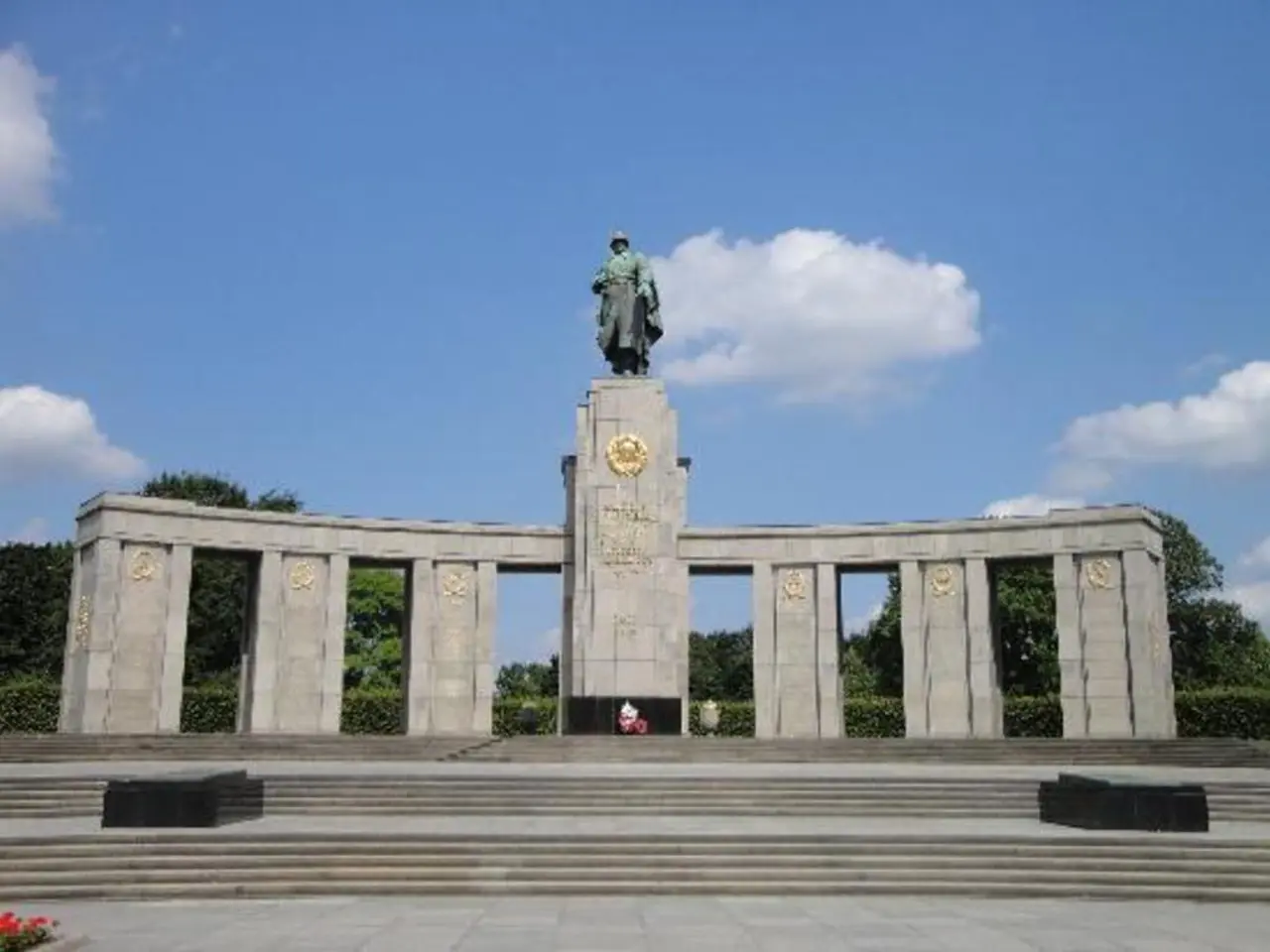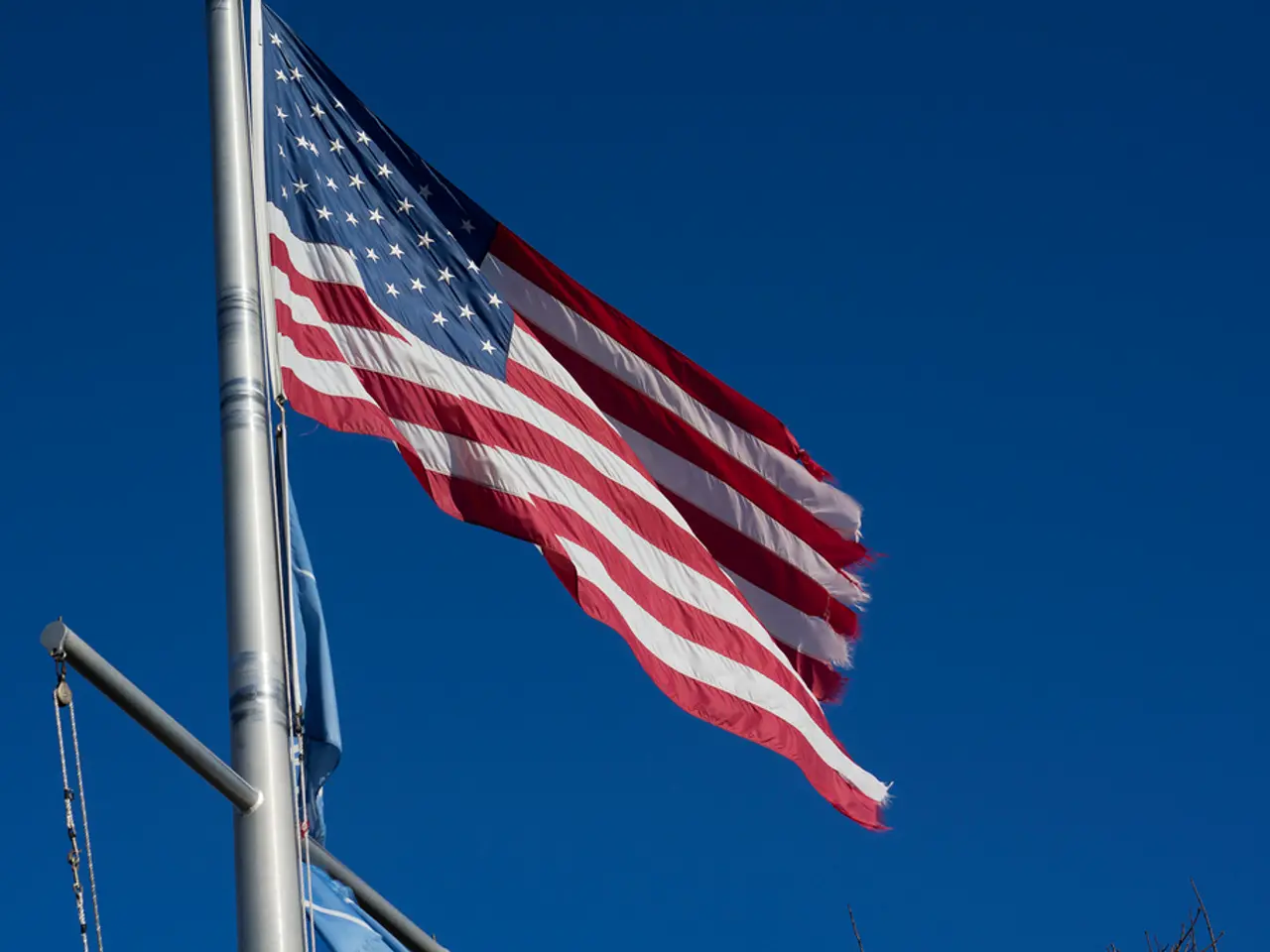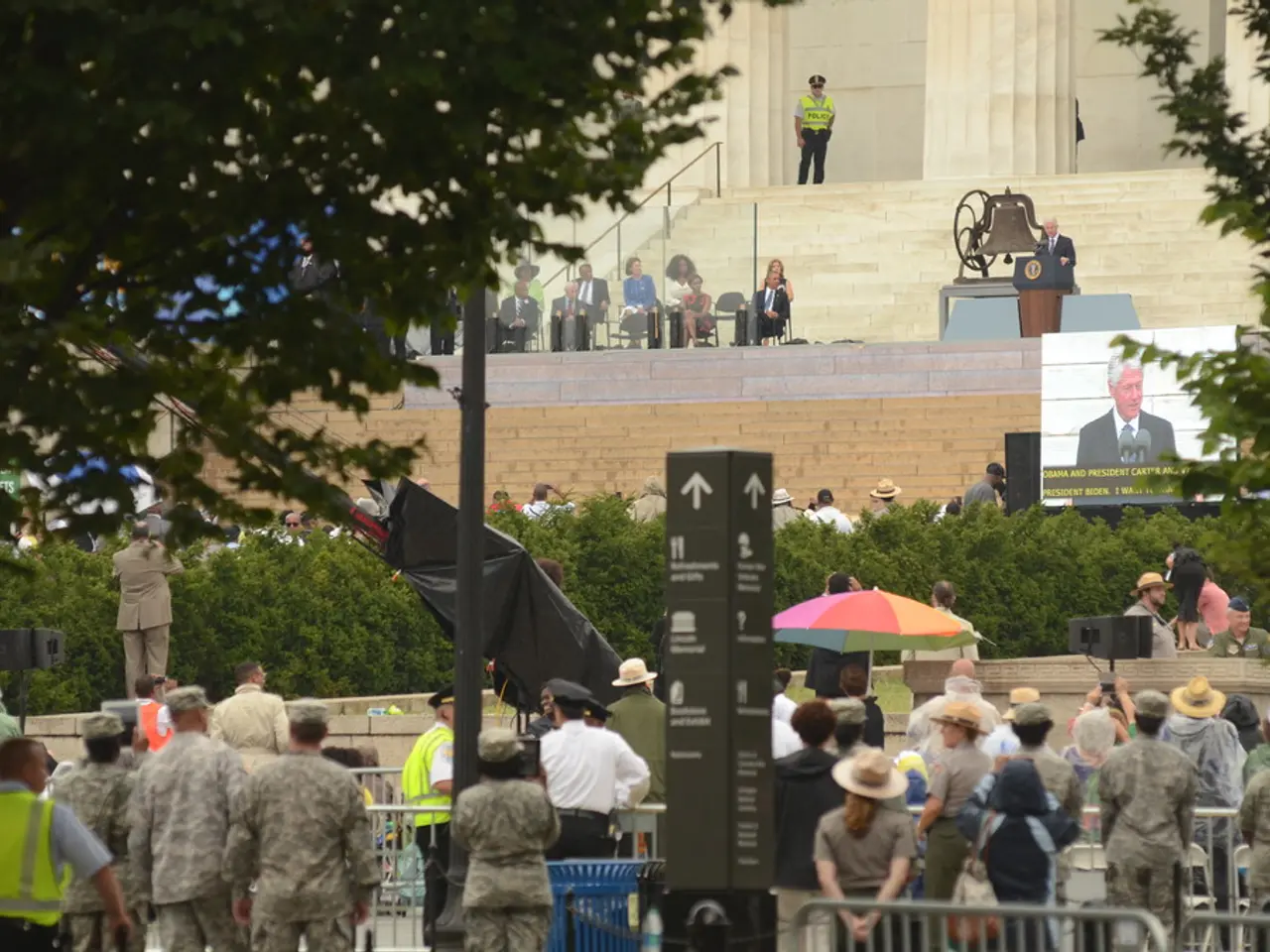U.S. tariffs to be the focus of Carney's meeting with the cabinet and premiers
In the ongoing trade dispute between Canada and the United States, Canadian Premier Doug Ford has called for a firm response to the recent tariff increase on Canadian goods.
The latest tariff levied by the U.S. on Canadian goods took effect on Friday, with a rate of 35% on Canadian imports not covered by the Canada-United States-Mexico agreement on free trade (CUSMA). For key sectors such as steel and aluminum, tariffs can be as high as 50%.
Foreign Affairs Minister Anita Anand and Finance Minister Francois-Philippe Champagne are currently in Mexico City for trade meetings with Mexican officials and businesses, as Canada seeks to diversify its trading partners.
Ontario Premier Doug Ford expressed frustration over the impacts of these high tariffs on his province's economy. In response, Ford suggested a dollar-for-dollar, tariff-for-tariff approach, urging the federal government not to "roll over" on the tariffs.
The Canadian government, led by Prime Minister Mark Carney, has imposed retaliatory tariffs on U.S. goods worth tens of billions of dollars. These tariffs target items such as liquor, vegetables, clothing, shoes, and perfume, mainly affecting politically sensitive U.S. regions.
Despite the ongoing trade conflict, about 85% of trade between Canada and the U.S. remains tariff-free due to CUSMA. However, sector-specific tariffs, such as a 50% duty on steel, aluminum, and copper, remain in effect.
In a positive development, Ford had a "good conversation" with U.S. Commerce Secretary Howard Lutnick on Tuesday. Ford also called on Ottawa to cut taxes and suggested eliminating the HST on homebuyers to stimulate the economy.
Prime Minister Carney, meanwhile, has not had recent discussions with U.S. President Trump. Carney expressed disappointment with the tariff increase but reaffirmed Canada’s commitment to CUSMA and highlighted ongoing investments in border security to combat drug trafficking.
This ongoing trade conflict marks a significant escalation beyond traditional trade disputes, rooted in border security and drug policy concerns rather than just tariff negotiations. The Canadian government continues to advocate for a fair and balanced trade relationship with its largest trading partner, the United States.
- The ongoing trade conflict between Canada and the United States has extended beyond traditional tariff disputes, as it is now rooted in concerns about border security and drug policy.
- The Canadian government, led by Prime Minister Mark Carney, is advocating for a fair and balanced trade relationship with the United States, a position that aligns with the politics of policy-and-legislation and the economy.
- In the face of increasing tariffs on Canadian goods, Ontario Premier Doug Ford has suggested a dollar-for-dollar, tariff-for-tariff approach, acknowledging the impact of these tariffs on the economy and expressing frustration over the situation. This strategy falls under the policy-and-legislation category, as it relates to the response of the Canadian government to the tariff increases.






